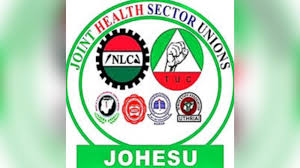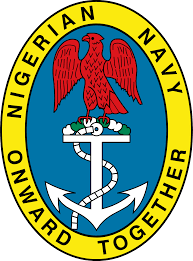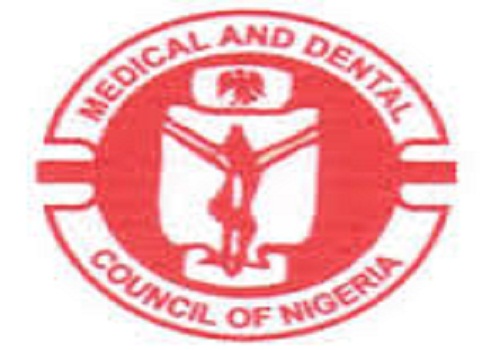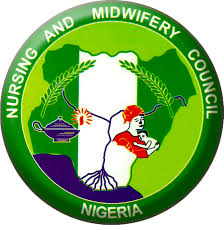COMMUNIQUÉ ISSUED AT THE END OF 22ND ANNUAL NATIONAL SCIENTIFIC CONFERENCE OF THE ASSOCIATION OF HOSPITAL AND ADMINISTRATIVE PHARMACISTS OF NIGERIA (AHAPN) ‘KWARA 2021’ HELD FROM 2ND – 6TH AUGUST 2021 AT DE-PEACE HOTEL & SUITES, ILORIN, KWARA STATE
PREAMBLE:
The Conference began with a health outreach programme in Ilorin, Kwara state. It was followed with a courtesy call on the Emir of Ilorin, His Eminence, Dr Ibrahim Sulu Gambari, CFR followed by a health walk against Drugs and Substance Abuse embarked upon by the delegates led by Her Excellency, Ambassador (Dr) Mrs Olufolake Abdulrasaq, the First Lady of Kwara State represented by the Honourable Commissioner of Health, Kwara State, Dr Raji Rasaq. The Conference was declared open by His Excellency, The Executive Governor of Kwara State, Abdulrahaman Abdulrasaq ably represented by the Permanent Secretary, Kwara State Ministry of Health, Mr Ayo Yusuf.
The Chairman of the opening ceremony was Mallam Yusuf Olaolu Ali, SAN, ably represented by Barr. Kehinde K. Eleja, SAN.
Dignitaries present at the Opening ceremony included the Executive Governor of Kwara State represented by the Permanent Secretary Kwara State Ministry of Health, Mr Ayo Yusuf, the Emir of Ilorin, His Eminence, Dr Ibrahim Sulu Gambari CFR, ably represented by Alhaji Mohammed A. Aliyu, Balogun Agba of Ilorin, President, Pharmaceutical Society of Nigeria, Pharm (Mazi) Sam Ohuabunwa FPSN, FNAPharm OFR, MON, Registrar, Pharmacists Council of Nigeria, Dr. N. A. E. Mohammed FPSN, Director General, National Agency for Food and Drug Administration and Control (NAFDAC), Prof. Moji Adeyeye, represented by Dr. Monica Hemben Eimunjeze, Director, Drug Registration and Regulatory Affairs, NAFDAC, Permanent Secretary, Kwara State Ministry of Health, Mr Ayo Yusuf, Director of Food & Drug Services, Federal Ministry of Health, Pharm (Mrs) Olubukola Ajayi represented by Pharm. Andeyaso Kifasi, Deputy President (North) of Pharmaceutical Society of Nigeria, Pharm. Munir Elelu FPSN, Director of Pharmaceutical Services, Ministry of Health, Ilorin, Pharm (Mrs) Barakat Olatayo Olarenwaju, Director of Medical Services and Training, Ministry of Health, Ilorin, Dr Johnson Oyeniyi, Director of Nursing Services, Ministry of Health, Ilorin, Mrs Florence Adeniran, Director Planning, Research and Statistics Ministry of Health, Ilorin, Mrs Iyabo Fabiyi, Secretary General West African Postgraduate College of Pharmacists (WAPCP), Prof. Ibrahim Oreagba FPCPharm, National Chairman, Association of Community Pharmacists of Nigeria (ACPN), Dr. Samuel Adekola, Assistant Commander, Narcotics, National Drug Law Enforcement Agency (NDLEA) Kwara State Command, Mrs Roseline Aina, Dean of Faculty of Pharmacy, Obafemi Awolowo University, Ile-Ife, Prof. Moses Akanmu, Fellows of the PSN, Distinguished Service Awardees of AHAPN, Past Deans of Faculties of Pharmacy, Fellows of the West African Postgraduate College of Pharmacists, Past National Chairmen of the Association, Pharm. Idris Abdulaziz, Pharm. Yakubu Maji-Isah and Pharm. Martins Oyewole, members of the National Executive Committee of the Association, several Directors of Pharmaceutical Services from across the country, Pharmacists from the Armed forces, Pharmacists practising in NAFDAC and several well meaning members of the Association.
The conference was well attended by Hospital and Administrative Pharmacists, Pharmacists in other areas of practice of the profession and well wishers.
The theme of the conference was "Advancing Technological Revolution in Pharmaceutical Service Delivery.”
The Keynote address was delivered by Prof. Patrick Omonua Erah, Professor of Clinical Pharmacy and Pharmacy Practice, University of Benin, Benin City, Edo state.
Other sub-themes included:
1. Optimizing Patient Care with Technological Tools.
2. E-Dispensing and Digitalization in Hospital Pharmacy Practice: New Frontiers in Patient Care.
3. Technological Innovation in Taming Drug Abuse and illicit Drug Trafficking.
4. Technology as a catalyst for effective regulation of medicinal products.
5. Hospital Pharmacists Consultancy: Improving Patient Care.
RESOLUTIONS
The conference resolved as follows:
- Conference reaffirmed the indispensability concept of the Pharmacist as an integral member of the healthcare team crucial to the delivery of quality healthcare to patients in Nigeria and submitted that the integration of Pharmacists into the patient management team in a collaborative practice with clinicians in some practice settings in Nigeria has reduced preventable adverse drug events and saved the cost of healthcare to patients. Conference, therefore called on health institutions yet to align their Pharmacy practice to the aforementioned model to put machinery in place to see to its actualization as this has become the gold standard of practice of Pharmacy across the globe.
- Conference acknowledged the global trends in the evolution of Pharmacy practice which now includes provision of expert and specialized services such as Pharmaceutical care, radiotherapy, effective medication therapy management and specialized pharmacotherapy for disease conditions, specialized critical care, oncology Pharmacy practice, Pharmacovigilance and adverse drug reporting and critical aspects of Pharmaceutical care such as patient counselling and medication audits and submitted that the foregoing areas remain advanced and required expert and specialist skills to effectively drive their practice.
- Flowing from paragraph (II), Conference therefore, appreciated the efforts of the Federal Government of Nigeria to realign the country's healthcare system to meet quality standards in line with global best practices as demonstrated through government's creation and release of the circular on the Pharmacist Consultant Cadre for Pharmacists in Civil /Public Service in Nigeria as approved by the National Council on Establishment. Conference commended the Board of Management of University College Hospital, Ibadan for being a trail blazer in the implementation of the circular and called on all other hospitals in Nigeria to emulate UCH, Ibadan and commence implementation without further delay.
- Conference reaffirmed that Pharmaceutical care, a specialist practice, the mission of Pharmacy and a measure of the quality of the Pharmacist's contributions in the healthcare delivery system remains the bedrock and cornerstone of Pharmacy practice in the twenty-first century era. In the light of the aforesaid, Conference commended the Pharmacists Council of Nigeria (PCN) for her adoption of the AHAPN-pioneered Position Paper on Pharmaceutical Care as a veritable tool that would drive the implementation of this model of practice in Nigeria. Conference, therefore called on the PCN to fast-track the process of implementation in our health facilities across the country through proper regulation and adequate oversight.
- Conference reiterated the overarching relevance of the Consultant Pharmacist in patient care in today's provision of healthcare globally. It further noted that management of patients by consultant Pharmacists in collaboration with other caregivers achieved through deployment of the right skills and knowledge, display of the right attitude and effective and efficient communication will go a long way in properly shaping healthcare delivery services in Nigeria and remain mutually beneficial to both the patients and practitioners.
- Conference submitted that the practice of Pharmaceutical care requiring the specialist skills of the Consultant clinical Pharmacist remains a sine qua non for achieving positive impact in patient care which can be manifestly measured by indices such as reduction in morbidity and mortality, reduction in medication related adverse effects, reduced preventable medicine related hospital admission and re-admission, reduced unnecessary waste of medicines, reduced cost of healthcare and improved patient quality of life.
- Conference acknowledged recent advances in technology in the areas of computer and robotic engineering and its adaptation and deployment in Pharmacy practice in different parts of the globe and specifically noted that machines now performed functions such as prescription vetting and verification, prescription filling, counselling, refills and billing.
- Flowing from paragraph (VI) above, Conference submitted that the use of local technologies in Pharmacy practice remains germane and charged hospital pharmacists in Nigeria to identify specific problems/areas of immediate technology requirements in practice settings and work with experts to proffer solutions.
- Conference submitted that optimizing the use of technology assists the hospital Pharmacist in the maintenance of all relevant data needed in providing optimal oversight of patients medication therapy and such included prescription documentation, prescription vetting, the practice of Unit Dose Dispensing System and Pharmaceutical care and in research/clinical trials. It further identified computer-assisted prescription writing as a new tool to reduce errors and promote rational drug use.
- Conference further identified the critical issues to address with technology in Pharmacy practice in Nigeria to include: chaotic drug distribution system, control of Pharmacy practice, improving impact of Pharmacists in patient care, patient's medication therapy management and use of technological innovation in taming drug abuse and illicit drug trafficking.
- Conference submitted that the deployment and implementation of technology assists Pharmacists and Pharmacies in delivering improved care to their patients with positive impact on clinical, operational, financial and regulatory compliance.
- Conference identified e-dispensing and digitalization as technological innovation that is transforming the Hospital Pharmacy practice with great potential to mitigate the issues associated with paper-based prescriptions, prescription authentication, medication errors and medication safety, documentation etc
- Conference submitted that e-dispensing and digitalization promotes better co-ordination of care, improved clinical practice, accountability and communication across the healthcare continuum.
- Conference advocated the introduction and use of e-dispensing and digitalization principle in Nigeria's healthcare space as a mechanism to improve workflow and reduction in the complexities associated with the dispensing procedure, reduce prescribing and dispensing errors, improve patient safety through reduction of adverse drug events. It further submitted that its introduction will avail Pharmacists more time to focus on critical aspects of Pharmaceutical care such as patient counselling and medication audits.
- Conference submitted that technology remained a veritable tool for the effective regulation of medicinal products in Nigeria so as to assure quality, safety and efficacy of the products. Conference therefore, called on the National Agency for Food and Drug Administration and Control (NAFDAC) to forge necessary partnerships with other stakeholders with a view to deploying a more effective and robust means of securing the medicine supply chain in Nigeria.
- Conference called on the leaderships of federal health institutions in Nigeria to fast track the process of setting up of Compounding/Small Scale Production Units in their hospitals without delay in line with the directive of the Federal Ministry of Health and submitted that this measure would go a long way in saving cost for the institutions as well as ensuring medicines security in the long run.
- Conference appraised the incessant spate of industrial unrests within the Nigerian health sector and traced its etiology to the hegemony of injustice perpetrated by one group of health professionals perennially entrenched using the instruments of offices of its privileged members in high places in government. Conference, therefore, called on the Federal Government under the leadership of President Muhammadu Buhari, GCFR to demonstrate that it has the political will and take practical steps to redress the glaring cases of injustice and impunities that have become the hallmark of the health sector.
- Conference reviewed and appreciated the efforts of the leadership of the Joint Health Sector Union (JOHESU) and Assembly of Health Professional Associations (AHPA) in addressing the long standing cases of injustices perpetrated against members of JOHESU/AHPA.
- In line with the aforementioned, the Conference, therefore, called on the Federal Ministry of Health to respect the letters of the various collective bargaining agreements (CBA) it had reached with the leadership of JOHESU/AHPA.
- The Annual General Meeting unanimously ratified and adopted the proposals contained in the 2021 reviewed Byelaws of the Association as approved by the National Council.
At the end of the 22nd Annual General Meeting, the following officers were elected to steer the ship of the association for the next one year.
1. Pharm. Olabode Ogunjemiyo FPSN – National Chairman
2. Pharm. Elechi Oyim - Deputy National Chairman
3. Pharm. Oladele Obikoya - National Secretary
4. Pharm. Joseph Ole - Assistant National Secretary
5. Pharm. Oyinlade Kehinde - National Treasurer
6. Pharm. Saheed A. Olarenwaju - National Financial Secretary
7. Pharm. Zainab O. Alabi - National Publicity Secretary
8. Pharm. Hafsat Ahmed Abdullahi - National Internal Auditor
9. Dr. Francis Odigie - National Un-officio Member
10. Pharm. Uche Ezeh - National Un-officio Member
11. Dr. Kingsley Amibor - Immediate Past National Chairman
Dr. Kingsley Amibor FPCPharm
National Chairman
Dr. Hafiz Akande
National Secretary





